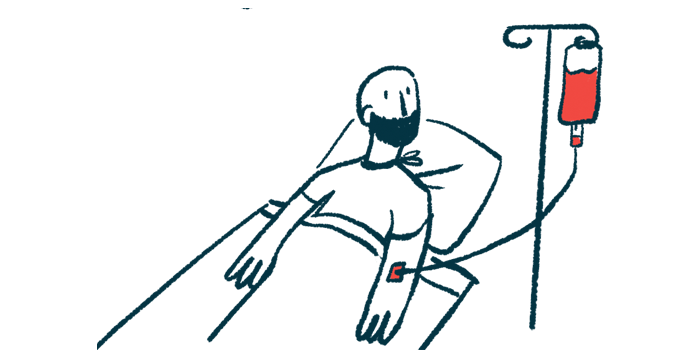Soliris found effective for aHUS tied to MCPggaac haplotype: Study
Genetic variant is linked to increased risk, severity of rare disease
Written by |

Complement-blocking medications like Soliris (eculizumab) can be effective for controlling atypical hemolytic uremic syndrome (aHUS) in patients carrying a genetic variant called the MCPggaac haplotype, a new study reports.
Researchers in Southeastern Europe reviewed the cases of 14 children in the region with aHUS to determine the best treatment for the rare disorder.
“The MCPggaac haplotype was found to be the most prominent among aHUS mutations in regional populations,” the scientists wrote.
The study, “The Rationale of Complement Blockade of the MCPggaac Haplotype following Atypical Hemolytic Uremic Syndrome of Three Southeastern European Countries with a Literature Review,” was published in the International Journal of Molecular Sciences.
No relapses seen for patients with genetic variant after starting Soliris
In aHUS, a part of the immune system called the complement cascade becomes overactive, leading to inflammation and clotting in small blood vessels, which damages the kidneys and other organs.
Most people with aHUS have mutations in genes that normally help to regulate the activity of the complement cascade. While these mutations don’t typically cause aHUS outright, it’s thought that they may set the stage for the disorder to develop.
The MCPggaac haplotype is a genetic variant that has been linked to an increased risk and severity of aHUS.
Here, researchers reported clinical data from eight people with aHUS carrying the MCPggaac haplotype who were treated at centers in Croatia, Bosnia and Herzegovina, and North Macedonia.
These individuals first began experiencing aHUS symptoms as children, at a median age of 33 months, or just before 3 years of age.
For all of the patients, the disease initially showed itself with common aHUS symptoms like fever, anemia, low platelet counts, and signs of kidney damage, such as high protein levels in the urine. Blood tests in all patients showed evidence of abnormal complement activation, helping to confirm a diagnosis.
Most of the patients were treated with Soliris, an approved aHUS therapy that works by blocking complement activation and is administered via infusion every other week. One patient did not receive Soliris because the therapy wasn’t accessible.
All of the patients also received plasma exchange, a form of treatment that involves replacing a person’s plasma, or the liquid part of blood. Two received renal replacement therapy, which is a type of treatment meant to replace the function of the kidneys when they are no longer able to fully perform their normal function.
For patients given Soliris, the median age at treatment initiation was about 7.5 years (92 months). Soliris was started after patients experienced a median of two aHUS relapses.
None of the patients given Soliris experienced subsequent aHUS relapses after starting treatment. Some of them were followed for more than 10 years.
Two patients stopped Soliris treatment and have not had any additional disease recurrence with more than a year of follow-up.
“If the decision of complement blockade cessation is made, it seems plausible to carefully monitor clinical and laboratory signs of kidney damage,” the researchers wrote.
According to the scientists, these data show that complement-blocking medications like Soliris can be effective for controlling aHUS in patients with the MCPggaac haplotype. The team suggested that such therapies should be given to patients carrying this genetic variant when aHUS relapses occur frequently, the disease rapidly returns following complement blockade cessation, or in the presence of severe permanent organ damage.
Soliris is marketed by AstraZeneca, which was not involved in this study.






